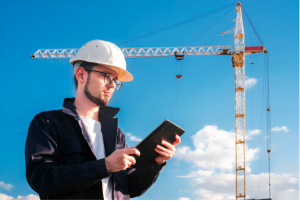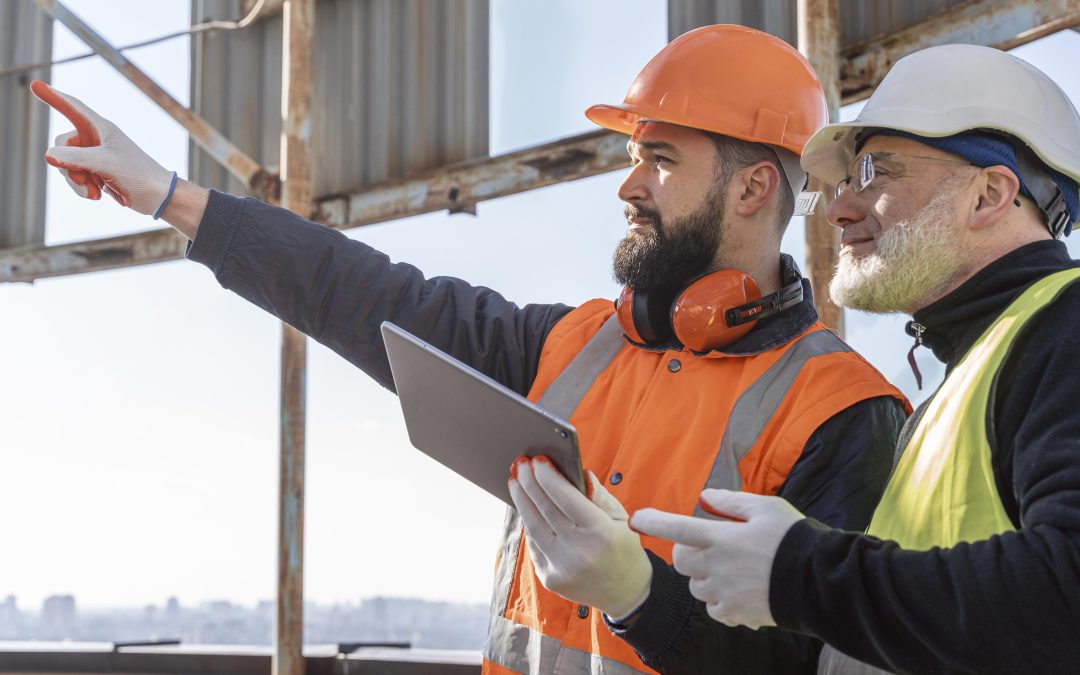The building sector in Michigan is expanding quickly, with more and more projects now running each year. Still, one of the greatest difficulties in building is time management. Sitework delays, including land clearing, grading, and excavation, can cause additional expenses and angry teams. Fortunately, artificial intelligence (AI) and machine learning are helping to solve these issues and enabling more seamless operation of construction projects. This post will look at how machine learning and artificial intelligence are changing the planning and execution of Michigan construction sitework.

What is Sitework in Michigan Construction?
Before discussing how artificial intelligence is altering the sector, let us first clarify sitework. The first stage of a construction project is sitework, which means getting the land ready before any actual construction starts. This covers everything from putting drainage systems to grading the land to clearing trees to digging foundations to more.
Sitework in Michigan presents its own unique difficulties. The weather can change quickly, making it hard to predict when work can continue. Different types of soil in Michigan may require special attention and care when excavating. Additionally, obtaining permits and dealing with regulations can sometimes slow down the project. As a result, these challenges often lead to delays, and delays can be expensive.
Artificial intelligence and machine learning fit in there. These technologies can help Michigan sitework crews plan and complete tasks faster and more efficiently.
How AI and Machine Learning Help
You might be wondering, how exactly do AI and Machine Learning work in construction? Let’s break it down.
- Artificial Intelligence (AI) is the ability of machines to do tasks that normally require human intelligence. In construction, AI can analyze large amounts of data, predict future outcomes, and make decisions based on that data.
- Machine Learning (ML) is a type of AI that allows systems to learn and improve over time. It uses past data to predict patterns and improve accuracy without needing constant input from humans.
Together, AI and Machine Learning can help in the following ways:
Predicting Delays:
AI can analyze past data from previous sitework Michigan projects to predict potential delays caused by weather or other factors. This allows the project manager to adjust the schedule in advance and avoid unnecessary hold-ups.
Optimizing Equipment Use:
AI can track the usage of construction equipment and determine the most efficient way to allocate resources. For example, if a particular piece of equipment is sitting idle, AI will suggest moving it to another task, ensuring it’s being used effectively.
Scheduling:
Machine learning algorithms can create smarter schedules by analyzing worker availability, site conditions, and weather patterns. This helps ensure that the crew works at the right time and the right conditions, keeping the project moving smoothly.
Improved Safety:
AI can help identify potential safety hazards before they happen. By analyzing historical accident data and current site conditions, AI can predict where accidents are most likely to occur and alert workers to take necessary precautions.
Real Benefits for Michigan Construction Sitework
Now that we understand how AI and Machine Learning work, let’s take a closer look at the specific benefits they bring to Michigan construction sitework projects.
1. Better Weather Planning
Michigan is known for its unpredictable weather, especially in the winter months. A sudden snowstorm or heavy rain can halt construction work for days or even weeks. AI can analyze weather patterns and predict when bad weather is likely to strike. By factoring in this information, construction managers can adjust their schedules to avoid working on days with high chances of inclement weather. This helps reduce downtime and keeps the project on track.
2. Efficient Crew Scheduling
One of the most important aspects of any construction project is ensuring that the right people are on the site at the right time. AI can assist in developing ideal timetables considering worker availability, skill sets, and even weather conditions. By doing so, it helps minimize downtime and ensures that work is completed on time.
3. Smarter Material Delivery
In Michigan, delays in material deliveries are another common issue on construction sites. AI can help optimize the delivery of materials by predicting the right times and routes for delivery trucks. This ensures that materials arrive when they are needed, preventing delays caused by waiting for supplies to be delivered. It also helps reduce costs associated with material storage on-site, as deliveries can be timed to arrive just before they are required.
4. Cost Savings
By optimizing various aspects of a Michigan sitework project—such as scheduling, equipment use, and material delivery—AI helps reduce unnecessary costs. AI tools can also track expenses in real-time, helping project managers stay within budget. Additionally, reducing delays and optimizing resources helps ensure that the project is completed on time, which also cuts down on labor costs.
5. Fewer Delays
Delays are a big concern in construction, especially in a state like Michigan, where weather and environmental conditions can be unpredictable. AI helps predict and prevent delays by analyzing all available data. This allows project managers to be proactive instead of reactive, making it possible to address issues before they cause disruptions.
How AI Improves Communication and Decision Making
AI doesn’t just help with planning and scheduling—it also enhances communication on construction sites. By using real-time data, AI tools can keep everyone on the same page. Here’s how:
Real-Time Updates:
AI systems can provide instant updates about site conditions, progress, and any delays. This helps construction managers, crew members, and clients stay informed at all times.
Faster Decision-Making:
With the help of AI, project managers can make decisions more quickly. They don’t need to wait for reports or feedback—they can see data in real-time and make adjustments as needed.
Improved Collaboration:
AI tools can integrate with other software used by construction teams, such as project management tools. This creates a more streamlined workflow and improves communication between different teams and stakeholders.
Instant Problem-Solving:
When problems arise on a construction site, AI can quickly analyze the situation and suggest possible solutions. Whether it’s a weather delay or an equipment issue, AI can help teams find the best way to solve the problem and get back on track.
Looking Ahead – The Future of Michigan Sitework
The use of AI in construction is still growing, and more companies in Michigan are starting to adopt these technologies. As AI tools become more advanced, they will continue to improve the way construction projects are managed. Smaller construction companies, as well as larger contractors, can benefit from these tools, as they make sitework faster, safer, and more affordable.
In the future, we can expect AI to become even more integrated into construction processes. With more data, smarter algorithms, and improved technology, Michigan construction sitework will become even more efficient, helping the state’s construction industry grow while keeping projects on schedule and within budget.
Conclusion
AI and Machine Learning are revolutionizing Michigan construction sitework. By predicting delays, optimizing resources, and improving communication, these technologies help construction projects run more smoothly and cost-effectively. As AI tools continue to improve, the benefits for sitework Michigan will only grow, making it easier for contractors and project managers to meet deadlines and deliver successful projects. If you’re involved in construction, it’s worth considering how AI can help make your next project a success. Contact us to learn more.


